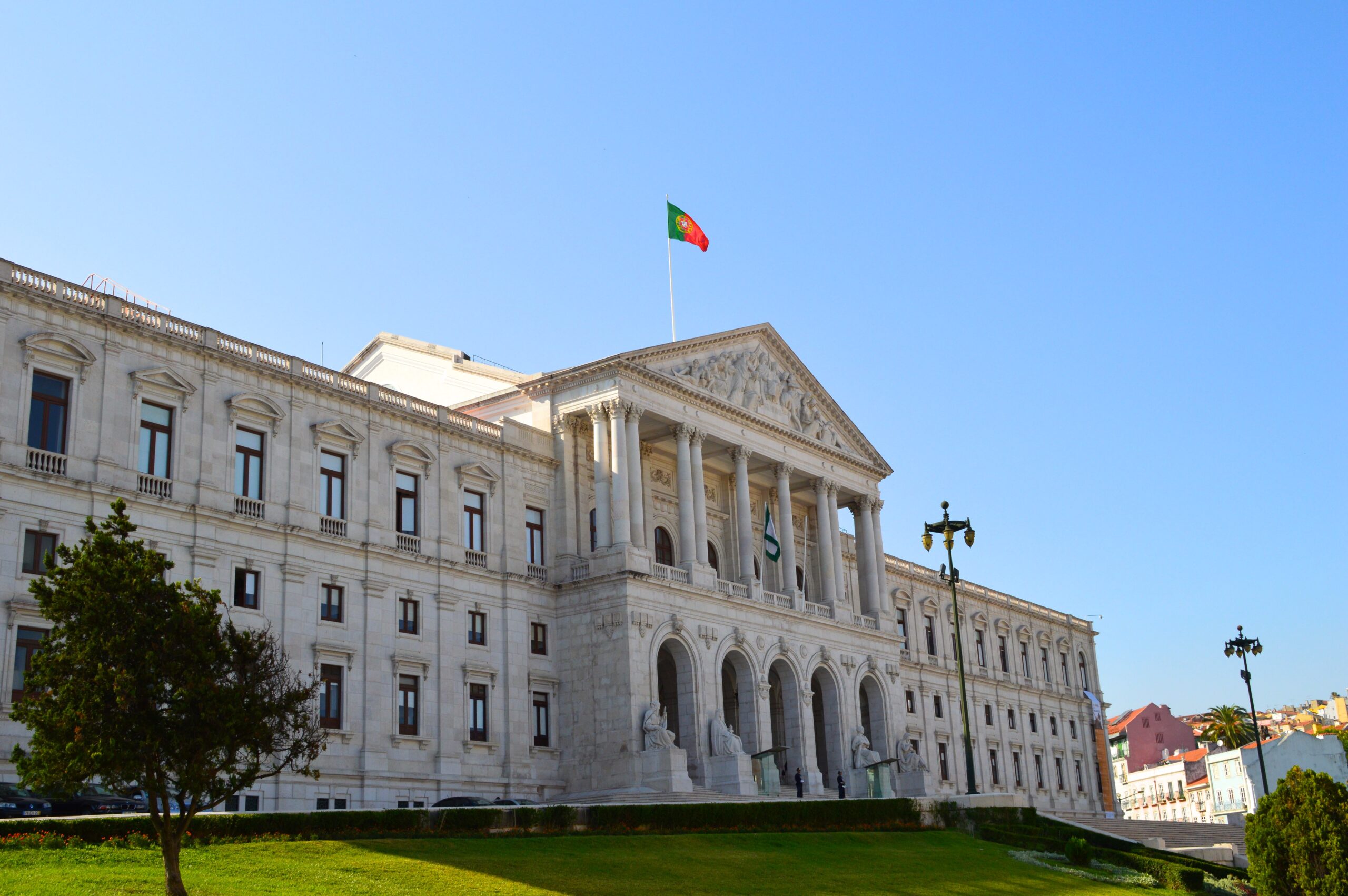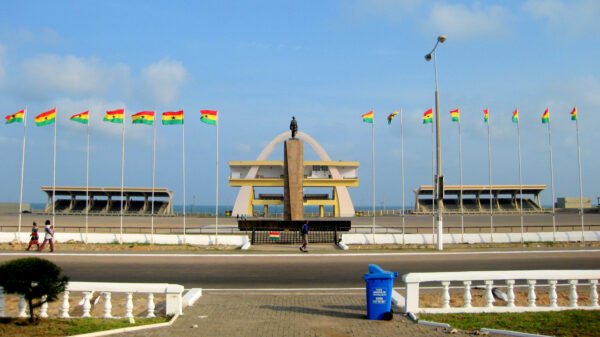Staff writer António Macedo examines Portugal’s political crisis, highlighting the need for right-leaning parties to steer the nation toward socio-economic growth
After an eight-year tenure marked by a troubled absolute majority, the dismissal of fourteen government officials, and numerous scandals implicating members of government and public institutions, António Costa has relinquished his position as the Prime Minister of Portugal. His official resignation letter, submitted to President Marcelo Rebelo de Sousa on November 7th, was promptly accepted, plunging the nation into a political crisis and leaving many questioning what the future holds.
What Happened?
The “political earthquake” unfolded as the police forces (PSP) searched various government ministries and the prime minister’s official residence. These actions were prompted by suspicions of criminal activity linked to lithium exploration projects in Montealegre, as well as corruption concerns extending to the green hydrogen business, all intricately tied to alleged favouritism regarding the construction project of a data centre campus in Sines—an investment projected to cost 3.5 billion euros. Notably, five individuals were arrested, two of whom had very close ties to Costa; Vítor Escária (his chief of staff) and Diogo Lacerda Machado (his best friend and close consultant). João Galamba, the current Minister of Infrastructure, is also a suspect, and Costa himself will face an investigation by the Supreme Court of Justice amid the unfolding scandal. This follows a statement from the Attorney General of the Portuguese Republic (PGR) indicating that, given the “knowledge of the invocation by suspects of the name and authority of the Prime Minister and his intervention to unblock procedures in the aforementioned context (…) an independent analysis will be conducted as part of an inquiry initiated in the Supreme Court of Justice”.
In light of the severity of the situation and the allegations of the PGR, Costa, as expected, later announced his resignation. He affirmed that “the dignity of the prime minister’s office is incompatible with any shadow of doubt concerning his integrity.” This decision was the right one, considering that the nation could not tolerate being led by an individual under the cloud of suspicion.
In response to the crisis, Marcelo Rebelo de Sousa announced that he had summoned new elections for the 10th of March, announcing the dissolution of Parliament, though not in immediate effect, in order to ensure the approval of the state budget (OE24) currently under negotiations. This approach aims to prevent the country from operating on “management by twelfths” until the following government approves its own budget.
Costa’s Legacy
António Costa’s government, notably the one beginning in 2022, will leave a lasting legacy marked by political scandals—or, as he trivially termed them, ‘casos e casinhos’ (cases and small cases). These include a questionable half-million euro compensation in the national airline lacking justifiable cause, a brawl at the Ministry of Infrastructure followed by the dubious involvement of the Security and Intelligence Service (SIS), and the Minister of Finance hiring a friend as a consultant with a ministerial salary. The Socialist Party (PS) is a crumbling house, evident from the dismissal of fourteen government officials in just fifteen months, culminating in Costa’s resignation.
In the aftermath of these events, Portugal faces an urgent need for transformative change, grappling with a critical situation exacerbated by the incompetence and mediocrity demonstrated by Portuguese socialism. The nation’s economy is stagnating, purchasing power has dipped below levels recorded 10 years ago, public services hover on the brink of collapse, wages remain stagnant, and social support stands as the sole barrier preventing four million individuals from slipping into poverty. Furthermore, the tax burden reached unprecedented levels at 38% of GDP, surpassing even the heights observed during the “troika” years (when three institutions oversaw a financial assistance program in the country). As the Socialist Party navigates towards the depths, Portugal stands at a crossroads, calling for a turn towards right-leaning solutions and renewed hope.
A New Hope?
All eyes are now fixed on the right-leaning political parties for a change. The centre-right Social-Democrats (PSD), The Liberal Initiative (IL), The CDS-People’s Party (CDS-PP), and Chega! (CH). Portugal needs to revitalise its economy, attract investment, reorganise public institutions, and subsequently increase job opportunities and wages. The question is whether these parties are prepared to champion transformative change amidst a population characterised by disinterest, as reflected in consistently low voter turnout.
PSD, the second-largest party in the country and the primary rival to PS, has fallen short of fulfilling its role as the leading opposition force. Its leader, Luís Montenegro, lacks the charismatic appeal essential for a contemporary leader and has encountered difficulties in articulating policies that advocate meaningful changes, notably the recent tax structure proposal. Moreover, the association of PSD officials with a corruption scandal involving PS officials in the Lisbon town hall has inadvertently linked the party to its own opposition, diminishing its public appeal as the masses perceive it as merely another party of the existing establishment. Despite recent polls indicating a nearly 20% decrease in voting intentions for PS, PSD has not taken advantage of this, also declining in comparison to its 2022 results (22% compared to 27% in the 2022 election), reaching the top of polls more due to PS’s demerits than its own. If there is to be a right-wing majority in parliament, I doubt that Montenegro has it in him to be the man who brings the necessary socio-economic revolution that the country urgently needs.
In this political landscape, Chega!—positioned at the far-right end—has emerged as the prominent [and only] face of the opposition. André Ventura’s compelling style has propelled his party to challenge the dominance of the central bloc, significantly elevating voting intentions to 13%. Ventura’s party has excelled at tapping into public dissatisfaction, capitalising on populist sentiments, and presenting a distinctive and transparent voice in the political discourse, rendering it a viable alternative.
However, amidst Chega’s rise, concerns about political extremism persist. These are rooted in the party’s dubious stance on critical issues such as climate change and vaccination. Additionally, accusations of racism have further eroded the party’s credibility and viability, a reason why other right-leaning parties have sought to distance themselves from Chega, recognizing the importance of distinguishing their positions from those that are extreme.
The question of whether Chega poses a threat to democracy is, at this point, unfounded. No compelling evidence has emerged to support such a claim. However, Chega is on the precipice of a challenge if it aims to sustain its momentum. Addressing concerns related to extremism becomes crucial to broaden the party’s appeal and enhance its credibility. This proactive approach is not just about self-preservation; it is an essential step for Chega to contribute constructively to Portugal’s political landscape if it is to form a government.
Finally, CDS-PP has long been the bastion of centre-right and right-wing politics in Portugal since the Carnation Revolution in 1974. While it’s regrettable that the party lost its parliamentary representation in the recent elections, the current political setback could be viewed as an opportunity for it to reclaim the pivotal role it should have never relinquished.
Within a right bloc comprising parties that some might consider too lenient, such as PSD and IL, and others potentially leaning towards extremism, exemplified by Chega, there is a discernible void in Portugal. The absence of CDS is felt as a loss for those seeking a robust yet moderate right, one that steadfastly rejects “political correctness” and recognizes the imperative for a dynamic society. One that understands the paramount importance of wealth creation, fostering innovation and investment and steering away from a dependence on the state. CDS has historically been the advocate for this. Its absence leaves a gap in the political landscape, and there’s an evident yearning for a party that champions these principles while striking a balance between conservatism and moderation.
Nuno Melo has been doing a commendable job as the party leader responsible for revitalising CDS, but more visibility and mediatisation are needed. The latest polls attribute the party with 2.7% of voting intentions, a good start that would translate to electing 2 MPs, but more efforts are necessary to fully reclaim its position.
What Now?
The situation is intricate, and the credibility of Portuguese institutions hangs in the balance. Undoubtedly, the road ahead will not be smooth until a new government is in place, however, it falls upon the Portuguese people to wield the privilege of living in a democracy by selecting a new leader capable of reigniting belief among the Portuguese and propelling the nation away from the tail end of Europe, and back to its forefront.

















